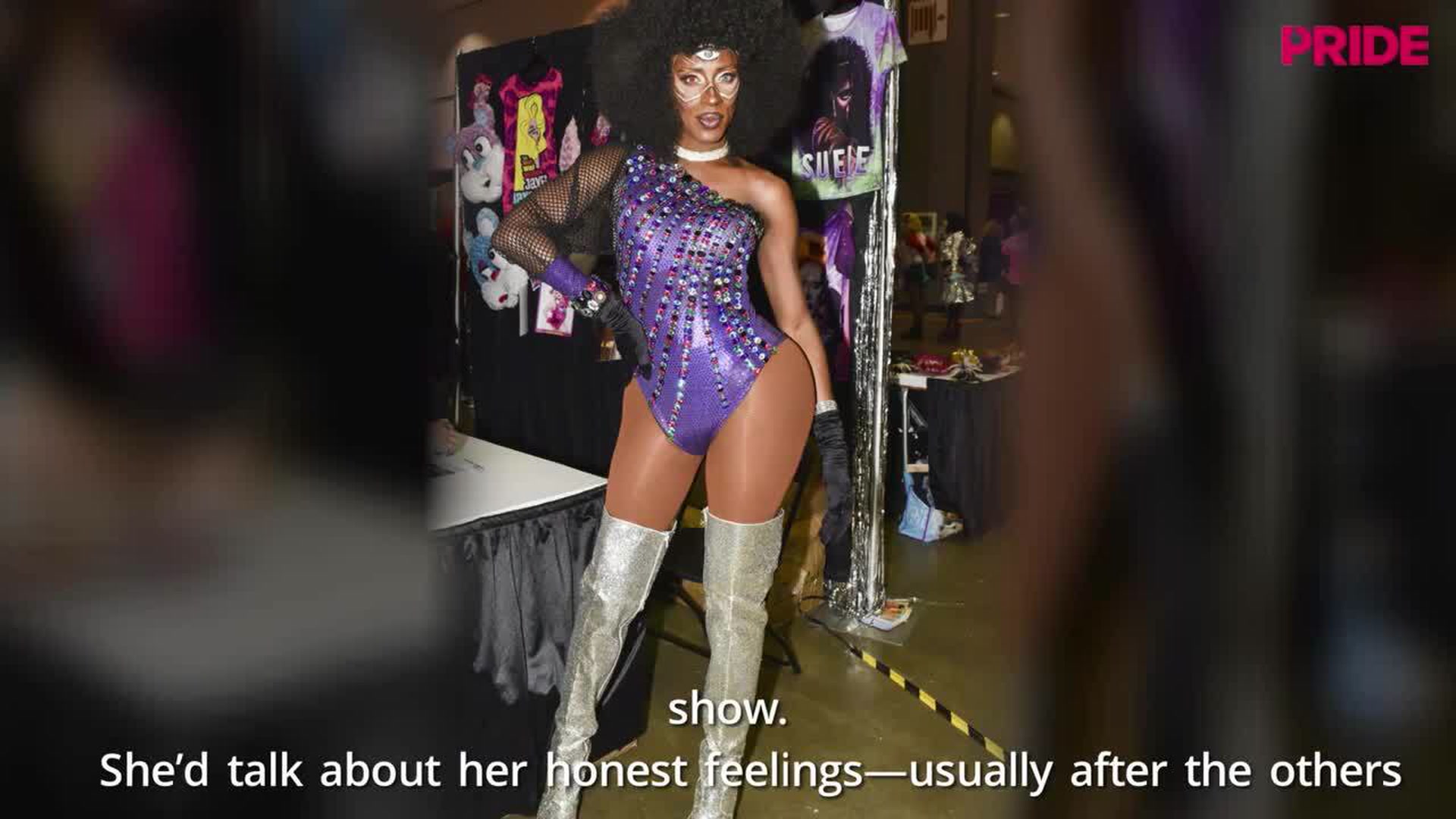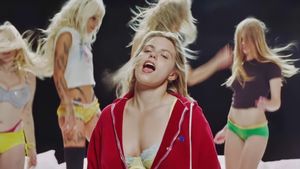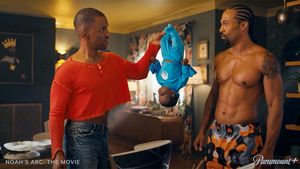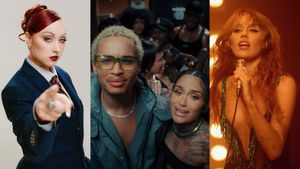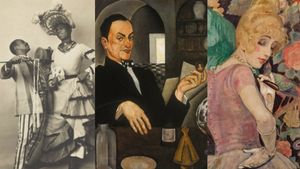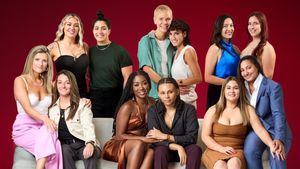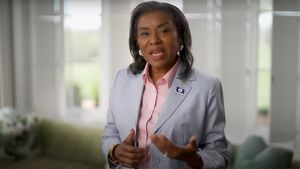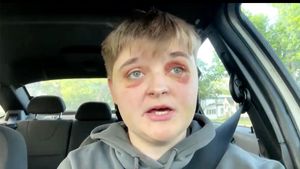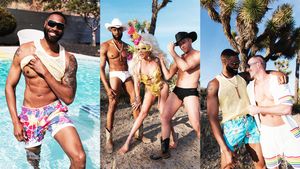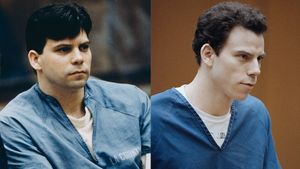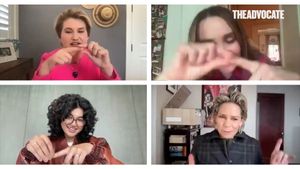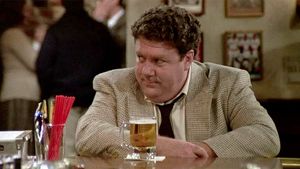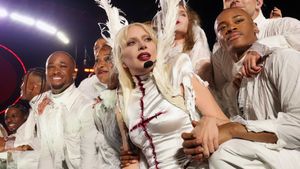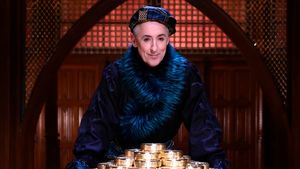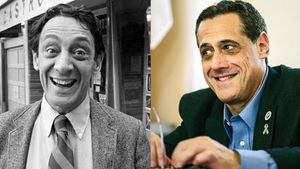Photo: Taylor Henderson
Many fans got what they wanted when Nina Bo’Nina “Negative Nancy” Brown was eliminated in the recently completed ninth season of RuPaul's Drag Race.
![]()
After a tumultuous journey on the show, she ended up at that almost impossible to overcome third lip sync for your life and was sent packing by the strongest competitor, Shea Couleé. The question worth asking is: since when has someone else’s self-doubt, anxiety, and depression become an attack against someone else? That was basically Brown’s experience on the show. She’d talk about her honest feelings—usually after the others probed and pestered her—and the other queens would roll their eyes and/or try to build her up, which she wasn’t asking for in the first place. But this is just the top layer of the real issue here, which is that RPDR and its fans have little to no respect or understanding of QPOC mental health.
While many in the queer community prefer a “we’re all the same” narrative because it erases the privileges that they have over others, the reality is that being a queer person of color is different than being white and queer. Every identity we carry affects our reality and since we don’t live in a post-racial America or world, it’s simply impossible to argue that race has no affect on how people are treated and perceived. Nina suffered inside of her mind throughout the competition, much like fan-favorite Katya did in season 7. Why, then, was Katya lauded, applauded, and supported while Nina was attacked and dismissed? Why then was season 7’s Pearl admired for her battle with self-doubt and coming out of her shell, while Nina was pushed and rushed? Why was it okay when competitive queens like Raven, Raja, and Violet Chachki weren’t there to make friends or impress their competitors, but it’s nasty when Nina says the same things? It just doesn’t add up to anything other than prejudice.
People need to understand that they don’t have to consciously oppress to be oppressive. Societal prejudices often hide behind faux logics that keep people from recognizing that it’s actually X identity about a person that’s making them they feel so strongly, and not whatever thing they tell themselves it is. The fact is, Nina didn’t do anything malicious this season, and certainly didn’t do anything, socially, any queen before her hadn’t done. The problems in this situation lies less with her and more with the other queens, like season winner Sasha who somehow feels it necessary to make faces because Nina’s anxiety and depression are such an inconvenience for her, while she and the others simultaneously overstep all bounds of decent humanity by trying to play therapist to her.
[iframe https://giphy.com/embed/O9mT8O4VQ1LBS allowfullscreen="" class=^{{"giphy-embed"}}^ frameborder="0" height="480" width="480"]
Again, Nina rarely stated her feelings without being pressed for them. The Untucked episodes clearly show that. It’s like Trinity K. Bonet said in season 6’s Untucked: the queens love to be congenial and build other queens up when they themselves got good critiques. In my humble opinion, the queens probably got so frustrated with Brown because she didn’t give them that supportive sister TV moment that they all wanted.
It’s not just Sasha, of course. Peppermint and Trinity’s disciplined, hard work approach to life doesn’t help either. Not everyone functions the way they do and their way isn’t universally right. It makes them happy, sure, but that doesn’t mean it would make Brown happy. However, the most relevant queen to Nina’s storyline on the show is undoubtedly Shea Couleé. And while Shea herself has since admitted on Instagram Live that she came on a little strong with her friendship to Nina during the show, fans everywhere took Nina’s distrust of Shea personally, regardless of what may have brought her to that mental and emotional place. People talked about how Nina "betrayed" Shea like they’d been best friends for years and weren’t in a competition that would change their lives. They missed the part wherein you can’t take the manifestations of someone else’s mental health personally, because it isn’t about you. It sucks and it isn’t fun, but it’s what you have to do if you really care about someone. No one said mental health was easy.
At the end of the day, Nina isn’t given the same autonomy that white queens are given. No one ponders what may have happened in her past to make her feel this way. No one brings up the intersections of her many marginalized identities. No one wants to embrace the complexity, the good and badness of being a queer person on a violent, hateful planet. They just remind us that it’s not "RuPaul’s Therapy Race" while simultaneously forgetting the pressure of competing in front of the world for the highest title in your field and a cash prize that could change your life. It’s easier to just think Brown is dramatic and buy into the messy edit she received.
![]()
Edit, in this case, is defined as the process by which paid TV professionals take hours upon hours of footage and cut it to an entertaining 45 minutes with added sound effects and confessionals that may or may not even be related to the situations they’re showing but that add drama or further a storyline. When people say "the edit" they’re not suggesting people didn’t say the things that they said nor are they saying anyone is one hundred percent innocent. No one is blaming the edit; it exists to be critiqued like anything else about the show because it’s part of the overall product.
At the end of the day a person is paid to create storylines so that people will be interested. Any good story needs heroes and villains, so that means this person is going to look for the most unflattering footage of the people who get cast as villains. They’ll add shady sound effects when they talk and show the other queens rolling their eyes and reacting to them as if that’s exactly what they did when lord knows what they might have been reacting to. It’s called editing. Learn and accept that what you see isn’t always the truth.
Somewhere along the line people accepted the values of Drag Race as universal, moral fact; that the way to overcome is to pull yourself up by your bootstraps. But that ideology not only doesn’t work for everyone, but also oppresses people who don’t have the means or ability to do so. It’s the ideology that says, for example, that poor people are poor because they aren’t working hard enough, which is not only wrong, but wildly oppressive. Nina didn’t have her a-ha moment while on the show because it simply wasn’t her time. It doesn’t mean she didn’t try or that she sabotaged herself, it just means that it didn’t happen, and people need to be okay with that. People’s journeys are not the same.
![]()
Once again, though, the RPDR fandom has taken a TV show far too seriously and finds it necessary to let Nina know directly, throughout the season, with tags and comments that she needed to go, that she was negative, that she betrayed Shea, and that Valentina deserved to stay over her (yeah, people who have watched Val’s elimination episode have seriously said this). But SHE is the negative one? At this point, though, as someone who looks at society through the lens of homonormativity, the fandom continues to use this show to expose the many bigotries that exist within our community. And it’s not looking good.
Everyone likes to pretend they care. Everyone likes to pretend that they’re invested in Nina’s happiness. But the show, and all its fans, gave Nina her moment at the finale by rubbing the Blac Chyna thing in her face...ONE. MORE. TIME.












































